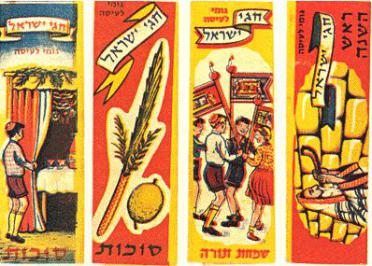Every week, parshaoftheweek.com brings you a rich selection of material on parshat hashavua, the weekly portion traditionally read in synagogues all over the world. Using both classic and contemporary material, we take a look at these portions in a fresh way, relating them to both ancient Jewish concerns as well as cutting-edge modern issues and topics. We also bring you material on the Jewish holidays, as well as insights into life cycle rituals and events...
When discussing the holiday of Purim, people often focus on two verses. The first tells us how Haman suggests to King Ahashverosh that he kill all the Jews in his empire:
"And Haman said to King Ahashverosh, There is one nation dispersed and divided among the nations in all the provinces of your kingdom and their laws are different from those of all other nations and they do not keep the king's laws, and it is of no benefit to the king to tolerate them."
This verse is often seen as a clever and correct assessment by Haman of the weakness of the Jewish people: they are "dispersed and divided" throughout the kingdom. It is precisely this lack of unity, the lack of a central place or position within Persian society, which is what makes the Jews so vulnerable, and such an inviting and easy target.
Later on in the Megillah, when Esther decides to try to save her people and plead their case to the King, she gives Mordechai the following instructions:
"Go, gather together all the Jews who are to be found in Shushan and fast for me; don't eat and don't drink for three days..."
Esther's instructions are often seen to be in dialogue with Haman's speech, as a kind of 'tikkun' or corrective to the Jewish problem that he so correctly points out, the fatal weakness of being divided and dispersed among the nations. Go and gather together all the Jews, she demands, unite them, put an end to the differences which divide them, and make them one nation. With that done, I will feel able to go to bat for them with Ahashverosh. Typically, this verse, juxtaposed with what Haman said to the king, is used as a plea for Jewish unity, pointing out the danger of being divided, and the strength in being united.
It seems to me, however, that Haman's words to the king should be understood differently. Although he does point out that the Jews are "dispersed and divided", he also calls them "one nation" ("am echad") and ascribes to them a unique and separate legal system, which sets them apart from the other nations. Perhaps a more correct reading of Haman's analysis of the Jewish condition is this: they are a nation which manages to be dispersed and divided and yet, at the same time, unified and distinct. Haman may, in fact, be pointing not to their weakness but, rather, to their strength: their ability to be a single nation while at the same time being multi-faceted, holding different opinions, living in different places and doing different things. Perhaps he is actually pointing to something strange and powerful in the Jewish people, that they are one, but are not monolithic. In fact, perhaps they are one by virtue of being dispersed and divided, by being flexible enough and open enough to include all kinds of Jews from all kinds of places together in one Jewish nation. It is precisely this duality, this ability to be "one nation...[whose] laws are different from those of all other nations", while at the same time being "dispersed and divided" that gives us the ability to defeat a Haman, and which so frightened him. Haman understood that, paradoxically, our unity derives from our differences.
Purim sameach,
Rabbi Shimon Felix



Get inspired by Purim Divrei Torah from previous years